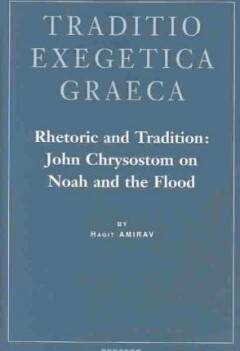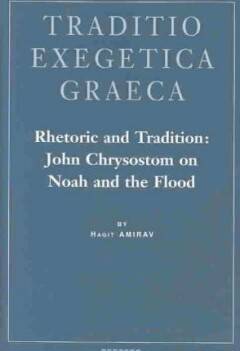
- Afhalen na 1 uur in een winkel met voorraad
- Gratis thuislevering in België vanaf € 30
- Ruim aanbod met 7 miljoen producten
- Afhalen na 1 uur in een winkel met voorraad
- Gratis thuislevering in België vanaf € 30
- Ruim aanbod met 7 miljoen producten
Zoeken
Omschrijving
In addition to the classical literary corpus, Chrysostom, like many other educated Christians, relied upon the Scriptures as an equally important source. Focusing on the use which writers made of the Scriptures in order to convey their moral, social, and theological ideas, this study is unique in that it offers a detailed analysis of patristic rhetoric against the background of the scriptural corpus. A close examination of a wide range of Greek exegetical and homiletic writings, in particularly the newly-available edition of the Greek Catena, reveals that the Fathers wrote and preached in accordance with well-established literary conventions. Chrysostom, his Antiochene colleagues and his Alexandrian rivals approached the biblical text with a full appreciation of the methods formulated by their predecessors. The evidence of the exegetes' meticulous and calculated use of the biblical text contradicts the present scholarly tendency to describe the homiletic literary output as spontaneous and free-flowing. For the first time, Chrysostom is examined not in an isolated way, but in the wider context of Antiochene and Alexandrian exegesis, and their respective theological ideologies. When studying the wider aspects of the Fathers' methods of interpretation, it becomes clear that the study of ideas cannot be separated from the study of their modes of expression.
Specificaties
Betrokkenen
- Auteur(s):
- Uitgeverij:
Inhoud
- Aantal bladzijden:
- 270
- Taal:
- Engels
- Reeks:
- Reeksnummer:
- nr. 12
Eigenschappen
- Productcode (EAN):
- 9789042912830
- Verschijningsdatum:
- 31/12/2003
- Uitvoering:
- Hardcover
- Formaat:
- Genaaid
- Afmetingen:
- 166 mm x 249 mm
- Gewicht:
- 621 g

Alleen bij Standaard Boekhandel
+ 130 punten op je klantenkaart van Standaard Boekhandel
Beoordelingen
We publiceren alleen reviews die voldoen aan de voorwaarden voor reviews. Bekijk onze voorwaarden voor reviews.











